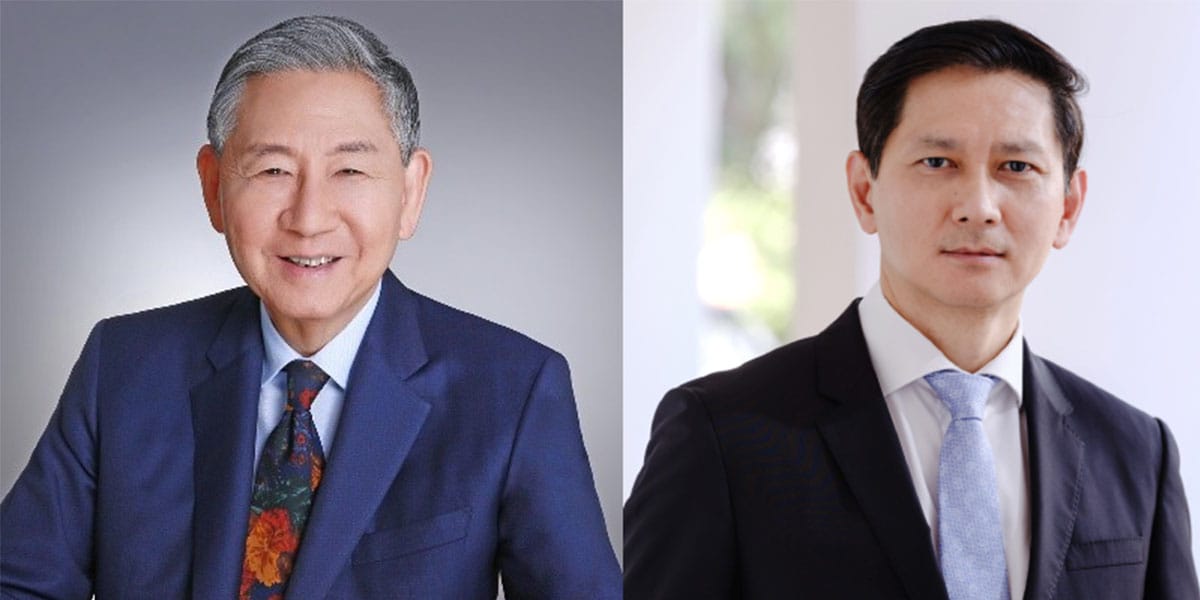Michael Hwang SC And Chan Leng Sun SC On Enforcing Ethics In Arbitration
Arbitration is still the preferred mode of dispute resolution for international transactions but do parties always play it fair? Veteran arbitrators Michael Hwang SC and Chan Leng Sun SC weigh in on the ethical standards to ensure the legitimacy of this decision-making process.

BY FOO KIM LENG
“Arbitration is not a Squid Game. Parties cannot win at all cost,” declares Chan Leng Sun SC, Chartered Arbitrator, Duxton Hill Chambers. Mr Chan, who has acted as counsel and sat as arbitrator in arbitrations in numerous countries, believes that trust is key to the viability of arbitration. “Trust in the fairness of its process, trust in the competence and impartiality of its arbitrators. All involved in the process of arbitration should rightly expect high ethical standards from both the Tribunal as well as the party representatives, who are usually lawyers.”
Institutions such as SIAC, ICC, LCIA and HKIAC require their appointed arbitrators to acknowledge that they will observe a code of conduct. “In some instances, it could be as basic as independence and impartiality, and devoting time and attention to complete the matter expeditiously,” Mr Chan.
Dr Michael Hwang SC, Director, Michael Hwang Chambers LLC, a fellow master in the field of arbitration, has a golden rule that guides his practice, regardless of his position on the Tribunal. “When I serve as arbitrator, more often than not, I am the Chair, so my natural approach to a case is to be strictly neutral on merits.”
“When I act as party-appointed arbitrator, I do not change my approach and sometimes have to be reminded who appointed me. I see my role as a party-appointed arbitrator as making sure that all material points raised by my appointing party have been properly considered by the Tribunal, and I do not agitate for my party’s point of view unless I agree with it. In fact, I have only been formally challenged to step down twice in my career, and both times the challenger was the party who appointed me.”
“Some years ago, I was serving as a party-appointed arbitrator, and the other party-appointed arbitrator was clearly following my neutral approach, the Chairman commented during a break in the deliberations, ‘You know, when I hear the two of you arguing about a contentious point, I sometimes forget who appointed each of you.’ My fellow party-appointed arbitrator and I took this as a compliment.”
What happens when parties end up with a less than impartial Tribunal?
“This should not happen,” says Mr Chan. “But it does and unfortunately it is not a blue moon phenomenon. It is rare to have an arbitrator who is overtly biased, or even goes so far as to engage in prohibited unilateral communications with one party to the detriment of the other.”
“The more prevalent form of bias is a subtle inclination to favour the party which nominates him or her. There will obviously be grave prejudice if this is a sole arbitrator. Where there is a 3-member Tribunal, it is still a serious problem.”
“The dynamics within a Tribunal can be complex. One cannot rule out the Chair being influenced by a biased arbitrator, or even the Chair himself or herself being biased. Thankfully, the instances where you find two out of three arbitrators being partial are relatively uncommon.”
What are some of the problems in enforcing ethical standards?
While there are codes of conduct for practitioners, sometimes called party-representatives, the question of how party-representatives should conduct themselves in an international arbitration is more vexing, says Mr Chan.
“First, there is difficulty in identifying core values given that they come from different legal traditions. Secondly, there are doctrinal and practical difficulties in policing ethical behaviour.”
Dr Hwang agrees: “A judge can impose sanctions on counsel personally for failure to meet the standards of ethics and competence required of all lawyers admitted to practice in his court. Such sanctions include the power to impose costs orders against the offending lawyer personally as well as contempt proceedings for more egregious conduct and last (but not least) referring the offending lawyer to his or her Bar Council or Law Society for a breach of its applicable ethical code.”
“Subject to some exceptions, that option is not generally open to an arbitrator because of the obligation of confidentiality imposed on all arbitrators and there is no recognised exception that would permit an arbitrator sua sponte to disclose to a third party any information about his arbitration,” he adds.
This topic of enforcement to ensure that parties behave ethically and fairly will be further explored in a panel discussion, Policing Ethics in Arbitration – Pipedream or Imperative? chaired by Mr Chan Leng Sun SC with a panel of leading lights in arbitration including Dr Michael Hwang SC; Justice Anselmo Reyes, International Judge, Singapore International Commercial Court; and Ms Sapna Jhangiani QC, International Legal Counsel, Attorney-General’s Chambers. Register here.

